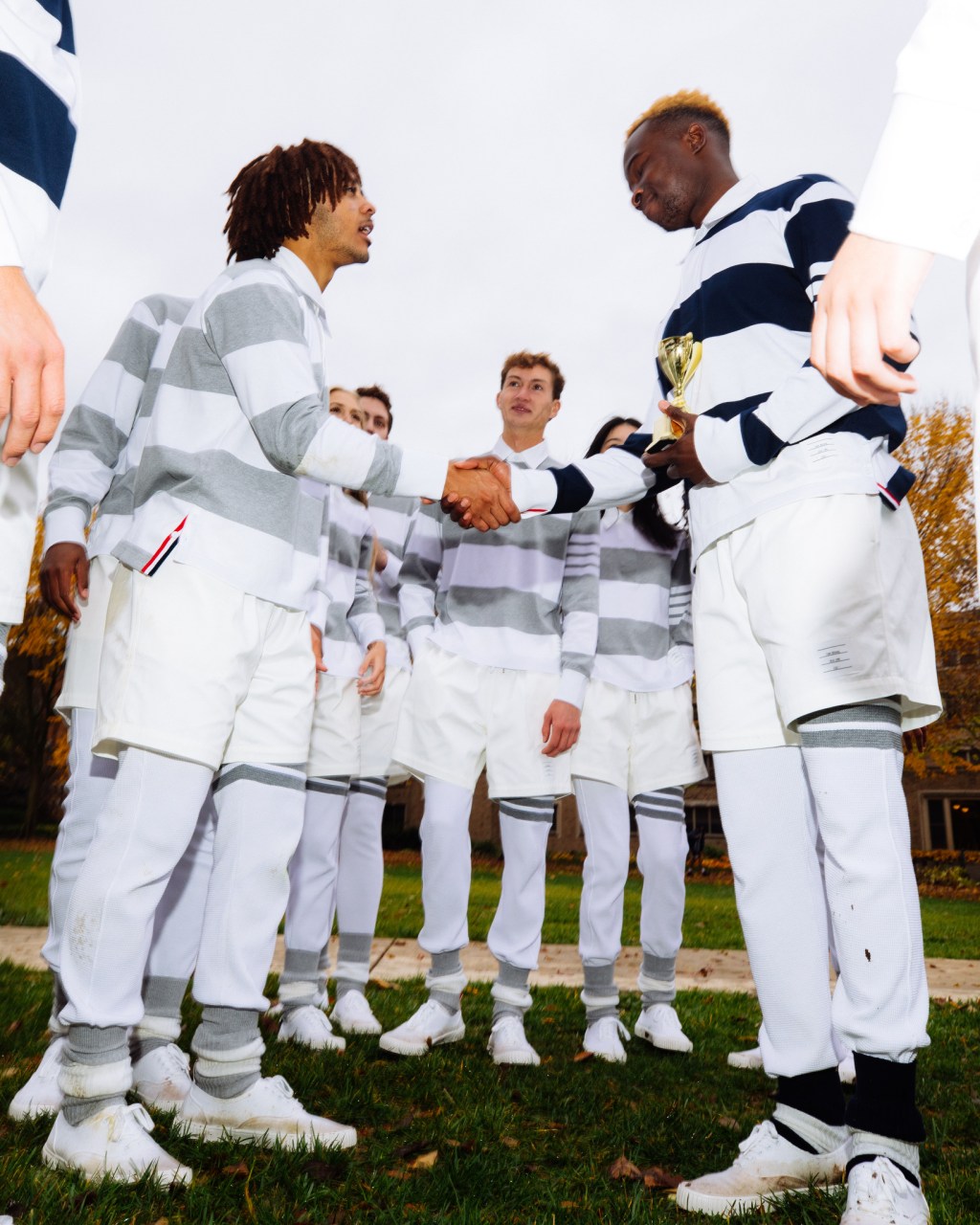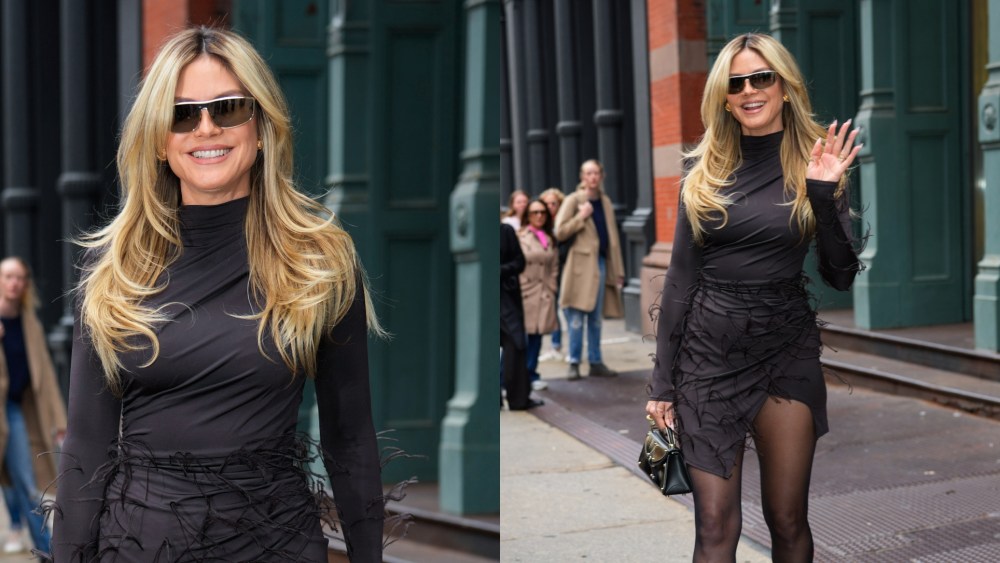Attorneys for Adidas and Thom Browne were back in a Manhattan court Thursday, wrestling over the intent of disclosure of five e-mails that surfaced after a trial between the two parties had wrapped up earlier this year.
In January, an eight-person jury in Manhattan’s Southern District Court determined that Browne’s firm was not liable for damages or profits that it made for selling products with four stripes or its trademark grosgrain ribbon. In October, Adidas deemed the e-mails in question cautioned against the use of four stripes, which it claimed are close to Adidas’ signature three stripes. In the initial trial, Adidas had argued that the designer brand’s use of four stripes had created confusion among consumers. Browne’s team had successfully argued that the designer had used stripes for years in his collections and that they had been collegiate inspired.
Adidas America and Adidas AG had sued Browne for using four stripes on some of the American designer’s active-inspired merchandise, saying it created confusion with the sports brand. The athletic giant had sought $867,225 in damages – the amount that Thom Browne Inc. would have paid in licensing fees, had they worked together officially. In addition, Adidas had sought $7 million in profits – the amount the company alleged that the designer earned from selling four-striped apparel and footwear.
Browne had been using three stripes on his collections for many years to reference collegiate varsity sweaters, but, after being approached by Adidas in 2007, agreed to change the design to four parallel bars. Adidas has been using its three-stripe bar in the U.S., since the 1950s. The athletic brand spends $300 million a year advertising the stripes, and products sporting the mark account for $3.1 billion in annual sales.
In October, the sneaker giant called for a new trial to bring the disputed e-mails in as evidence. Those e-mails had surfaced in August through a separate case in the U.K. Adidas is pursuing against Browne.
During Thursday afternoon’s hours-long hearing, three witnesses were grilled about the labeling and processing of the e-mails, which included exchanges with the designer himself. Much of the back-and-forth hinged on the suggestion that the e-mails had been marked “need further review,” but that did not happen. That categorization or tagging meant that those exchanges were not produced as documents and were withheld. The question is whether those actions were a matter of intent or being negligent and the answer will determine whether a new trial is called, according to Justice Jed Rakoff.
Browne’s legal team noted that 500,000 pages of documents had been produced and that the designer’s company, his law firm and the third-party company that assisted with the data management tied to the case had never intentionally withheld any documents.
Virginia Weeks, the IP litigation manager at Wolf Greenfield, the law firm working on behalf of Browne, testified that she had been given two criteria for tagging e-mails that required further review – anything that hit upon Adidas in a search term and anything that referenced Zegna (for confidentiality purposes), which is Browne’s parent company. She said that two attorneys, Quincy Kayton and Claire Schuster, would most likely have been tasked with looking at such flagged material. Schuster is no longer with Wolf Greenfield.
Weeks also said that in November – after the verdict had been reached — all of the non-produced emails had been taken off the database to save money, describing keeping them as “cost prohibitive.” Rakoff advised Browne’s legal team to determine what the estimated cost of restoring all of those e-mails would be by January 5. If that is not a huge amount, Rakoff said he would probably order that those costs would be shared between the two sides.
In addition, Cindy Babbit, who until April worked as a law clerk for Browne’s team, testified that the e-mails had been flagged as “need further review” and were shared with Concilio. Babbit stated multiple times that she did not recall the specifics of some matters including how many hours she had spent tagging e-mails, how many e-mails she may have read or what type of training she may have received about tagging.
Working on behalf of Adidas, a Crumbley-Blackwell-Price attorney questioned whether there were other e-mails written by the Thom Browne team that may have also referenced Adidas, but had not been presented.
Per Rakoff, Adidas’ legal team requested and can now obtain depositions from Kayton and Schuster, whose involvement the lawyers said they were unaware of until Thursday’s hearing. The Adidas lawyers can also obtain a deposition from Concilio, the third-party vendor that assisted with the data management of the documents related to the dispute. In court Thursday, an Adidas attorney said a witness from that company had not been called, due to a pre-trial indication that a third-party would not be blamed for any oversights.
Employees from Thom Browne and Adidas were not in the courthouse Thursday.



